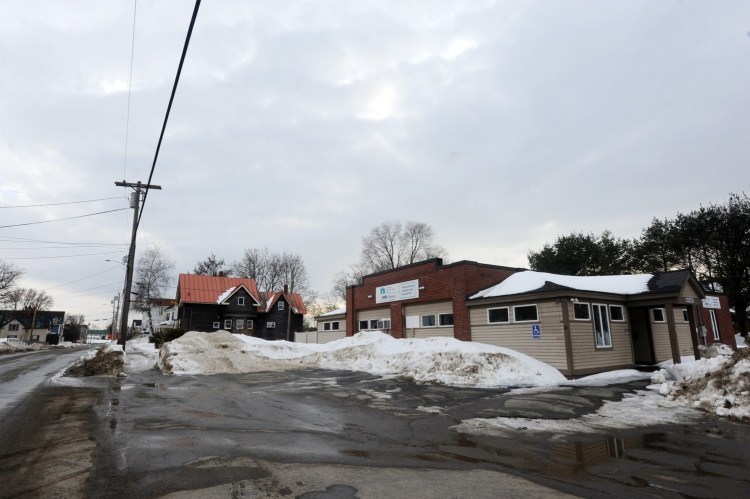WATERVILLE — The building that houses the Waterville Peer Recovery Center is for sale, and virtual programming for those dealing with mental health or substance abuse issues are scheduled to end next week.
The center has seen declining participation in its services since before the COVID-19 pandemic, which drove even more people to isolate, according to Linda Schreiber, interim executive director for the National Alliance on Mental Illness Maine.
The costs of staffing and upkeep at the building at 32 Ticonic St. are no longer sustainable, leading the NAMI Maine board to vote last month to sell the building, Schreiber said this week.
“We’re always looking at, ‘Are we being the best stewards of the resources we have and how many people we’re impacting with the dollars we’re investing?’” Schreiber said.
Staff members at the center are working with a “handful” of people to help them transition to other resources in the area, such as the LINC Wellness & Recovery Center at 38 Memorial Drive in Augusta, Schreiber said.
“I think it’s going to be a really smooth transition,” she said, “because LINC is doing similar programming and has a wonderful program in place.”
Schreiber said two or three people participate in specialized support or discussion-type groups, and three to five people have been attending community meetings. The meetings have largely been held over Zoom since the start of the pandemic in March 2020.
“It’s a hard thing to lose a place like this that was so important at times when they’ve been struggling in life,” Schreiber said.
The numbers are down from a membership of about 60 when the Waterville Peer Recovery Center opened in April 2018. The building was formerly home to the Waterville Social Club, which helped adults dealing with mental illness, and expanded its services and support groups after being taken over by NAMI Maine.
Schreiber cited the stigma associated with mental illness and recovery as a reason people shy away from support services. One of the core goals of the center has been to reduce that stigma, according to Schreiber.
The transition to Zoom turned out to have unanticipated benefits, including expanded access to services and more training for educators, police officers and others.
“It’s really opened up the access to lots of Mainers who are living in remote communities,” Schreiber said.
She noted that LINC is providing many support groups and services through Zoom, which should help make the transition easier for those from the Waterville Peer Recovery Center.
Schreiber said she is hopeful for the future of the building at the corner of Ticonic and Edwards streets, saying there has been interest from a group that provides similar services.
“Our biggest hope is that another agency or entity can come in and provide similar recovery services that are needed in the community,” Schreiber said.
Send questions/comments to the editors.



Success. Please wait for the page to reload. If the page does not reload within 5 seconds, please refresh the page.
Enter your email and password to access comments.
Hi, to comment on stories you must . This profile is in addition to your subscription and website login.
Already have a commenting profile? .
Invalid username/password.
Please check your email to confirm and complete your registration.
Only subscribers are eligible to post comments. Please subscribe or login first for digital access. Here’s why.
Use the form below to reset your password. When you've submitted your account email, we will send an email with a reset code.